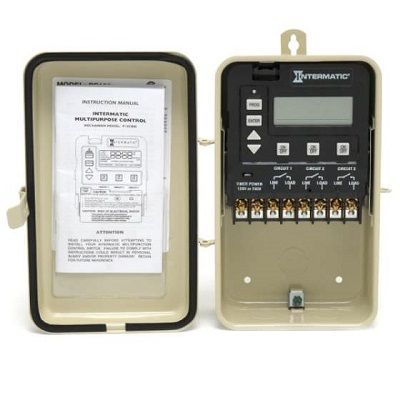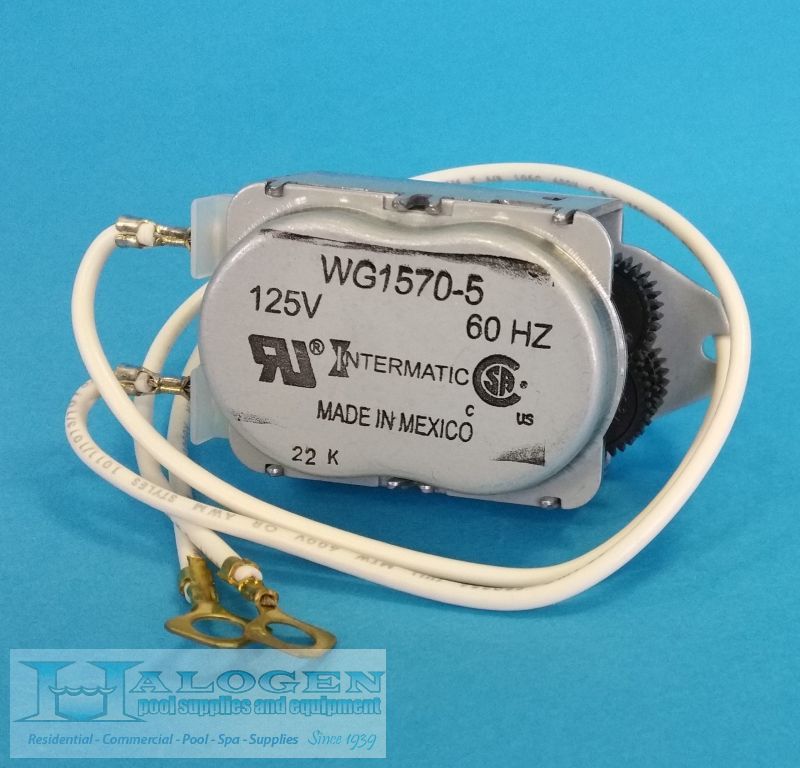


Mechanical (Analog) timers are cheaper, easier to use, and invulnerable to power surges.Pool timers come with many different features The type of pool pump timer you choose will depend on the size and type of your pool, as well as the equipment and accessories you have in your pool. The tradeoff is control and functionality at a higher cost. If any part fails, you’re looking at a higher price tag and hiring professionals to fix the system.
#Pool motor timer clock Bluetooth
With features such as Bluetooth and wireless control, multiple programmable functions, smart house integrations, and smartphone apps, these offer the most high-tech options for your backyard oasis.Īlthough digital timers offer a high-level of customization and a plethora of options, the digital downside is the complexity.
#Pool motor timer clock full
They can control many systems at once, such as lighting, fountains, and music too.ĭigital pool pump timers can range from anything from an LED display to a full smart system that gives you full control over your pool (and other backyard appliances) from anywhere in the world.

Digital timers have gotten pretty fancy over the years and now can even be integrated with smart home technology. If a mechanical pool pump timer is a clock with gears, a digital timer is basically a smartwatch.
#Pool motor timer clock professional
If anything breaks, a mechanical switch is super easy to replace and won’t require replacing the whole electrical system (or hiring a professional to do it for you). If you’re a DIY guru, the wiring for a mechanical timer is easier to manage than the digital version, making installation a breeze for anyone to do. These are a bit bulky and not exactly pretty, but are fairly inexpensive and will last you a long time. A mechanical pool pump timer uses the same principle - the dial you set will hit the on/off tabs and either disrupt or reconnect the power source.ĭo you just want something simple to turn your pool on and off each day? If so, a mechanical timer will do the trick.

It’s full of springs and gears and will run (practically) forever if left alone. When you think of a mechanical pool pump timer, think of a grandfather clock or your grandfather’s wristwatch. What Types of Pool Timers Can You Buy? Mechanical Timers (Analog/Manual) Note: Most variable speed pool pumps have an in-built timer, so if you have one of those, it’s unlikely you’ll need a pool timer unless it’s paired with a saltwater generator. This way, you can actually decrease your energy bill, increase the lifespan of your pool pump motor, and keep your pool water clean and properly filtered-all while taking steps that benefit the environment. Using a swimming pool pump timer automates this process and takes this task off of your plate. When the clock reaches the preset shutoff time, the timer cuts off the power to the pump and reconnects when you’ve programmed it to come back on.Įven the best-intentioned pool owner can forget to turn the filter on and off. You can set the timer to go on and off at certain times of the day or night. Pool timers not only automate a mundane activity in your life but can actually end up saving you a lot of money in the long run.Ī pool timer becomes a sort of middle-man between your pool pump and the electrical socket. A pool timer is a device that allows you to turn your pool filter on and off at certain times, without you having to do it manually.


 0 kommentar(er)
0 kommentar(er)
